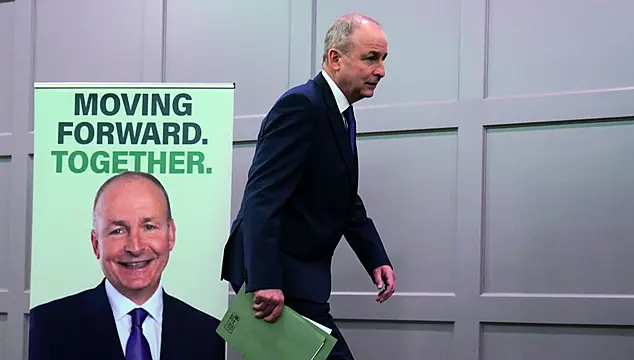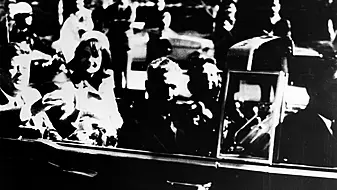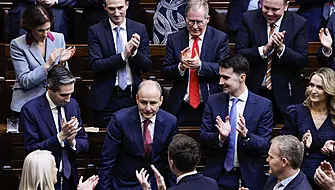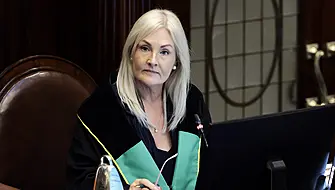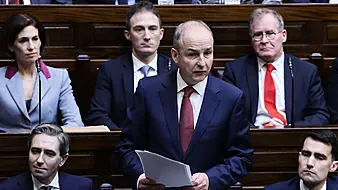Fianna Fáil could be in line for an even better general election showing than polls are suggesting and claim up to 50 seats, according to former minister for agriculture Ivan Yates.
After analysing each constituency, Mr Yates told BreakingNews.ie that his prediction is around 50 seats for Fianna Fáil, followed by Sinn Féin on around 38 and Fine Gael on around 35.
Mr Yates, who looked at each constituency on the Calling It podcast on Newstalk, added that it is "impossible to be precise".
However, he feels Fianna Fáil, who lead the polls on around 21 per cent, will do better than forecast.
"We have decades of polls not accurately recording Fianna Fáil's position. They're not too bad with the other parties but from the run-up to the local and European elections, Fianna Fáil were consistently between 15 and 18 per cent in all polls.
"In July they were back into 18-19 per cent, they got 23 per cent in a real vote. Polls underestimate the strength of individuals, 50 per cent of people vote for the candidate, they don't represent that strength in Fianna Fáil with more experienced candidates, a better localised infrastructure outside of Dublin.
"Generic polls of 1,200 people just don't detect any of that."
Transfers
He added: "It doesn't reflect the latest poll, but the latest poll would have Fianna Fáil on 21 per cent, Fine Gael on 20 per cent, Sinn Féin on 20 per cent, that kind of territory which wouldn't lead you to the results I'm suggesting.
"Once you get into the constituencies and look at the prospect of a strong transfer between Fianna Fáil and Fine Gael, and look at who is closer to seats after eliminations.
”If there are two seats left, and three people between Fine Gael and Fianna Fáil involved, a bit like John Mullins in Cork in Ireland South, his elimination elected Cynthia Ní Mhurchú. I think that is a prospect.
"Overall, the position is Irish politics has never been more fragmented.
"I think all of the respective campaigns of smaller parties haven't really caught fire. I think the Greens were heading for a decline and they haven't arrested it, they're of the government but not for the government.
"The main narrative of the election is 'do you support the continuation of a Fianna Fáil/Fine Gael stability, pro-enterprise economy', the counter-narrative is '100 years of Fianna Fáil/Fine Gael and it's time for change'.
"The narrative that connects will be the winner; the same with Donald Trump in the US, the economy and migration connected more with voters, he won."
If his predictions are correct, Mr Yates said a significant gap between Fianna Fáil and Fine Gael could lead to "weeks of drama" when it comes to government formation.
'No entitlement to a rotating Taoiseach'
"I think that there would be no clear entitlement to a rotating Taoiseach or parity esteem if those results were the accurate final results.
"It's obviously going to be a hard, tough negotiation. Between the two parties they won't have enough, they're on 80+ but, while it's an inexact science, they'd probably need in the low 90s to form a stable government.
"The first issue is how they actually form a government with a viable, lasting majority. The second issue is whether there will be parity of esteem or not.
"Obviously, there will be people who point out that the arithmetic of Fine Gael and Fianna Fáil adds up to a majority, but I think Martin will be resolute both before and after the election in resisting that.
"I think Martin is in absolute control of the Fianna Fáil party and there isn't the prospect of what Martin wants not happening. Politics is very unpredictable, if there was months of delay in forming a government, it could get quite fractious in two or three different directions, but there will be a period of uncertainty ahead."
He added: "The first thing they need is a Fianna Fáil/Fine Gael deal, and if there's a senior-junior element to that it will be tricky, and the bigger party will say 'why should we?' You're going to have that drama for a number of weeks. The bigger the gap between Fine Gael and Fianna Fáil, the more inherently difficult it will be. If I'm wrong, and they're both on 38 or so, then it's no problem, or 42 each if they have a good day.
"I don't see circumstances where there will not be at least six seats between them, so that's where the margin of error comes in."
While the Labour Party has been mooted as a possible third party in a coalition government, Mr Yates thinks Micheál Martin and Simon Harris would favour Independents rather than a third party, if it will give them a stable majority.
However, he said Labour is certainly a possibility for government as he predicts they will win between 6 and 12 seats.
Mr Yates said the Green Party face a far more uncertain future.
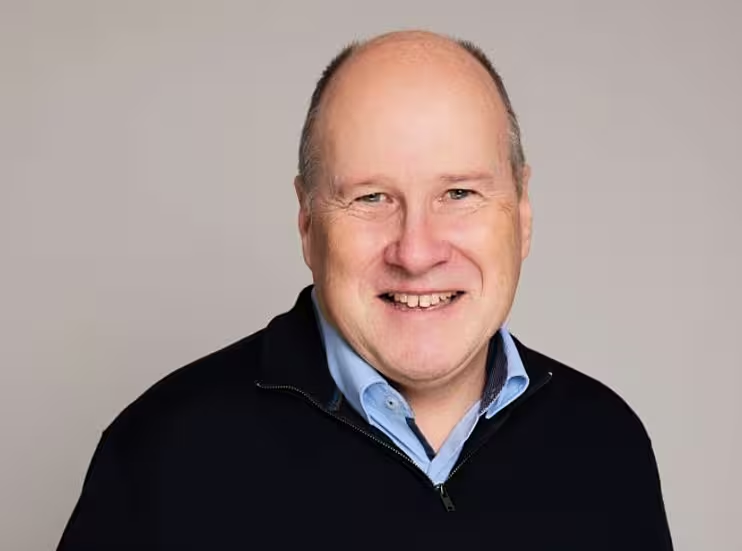
"It all depends on the figures, but my sense of it is if it's 5 or 12, it could be either, but I think gene pool Independents will be the first port of call provided they'll sign up to five years and take the whip, like Shane Ross' Independent Alliance did with the ministerial appointments.
"There are people from Michael Lowry to Noel Grealish, who voted for the last government when they didn't have to. Their support base is amongst Fine Gael and Fianna Fáil people and they're cannabilising the Fine Gael vote in north Tipperary, so they'll act as almost proxy Fianna Fáil/Fine Gael people.
"I think Labour have a real opportunity to get 12 seats: people like Conor Sheehan in Limerick city, Darragh Moriarty in Dublin South Central, Laura Harmon in Cork South Central, Ciaran Ahern in Dublin South West.
"It's a new generation of Labour that can't be blamed for the Burton/Gilmore era toxicity over water charges. I'm not feeling a surge for them on the ground, but the opportunity is there.
"On the ground, I'm hearing Independents are doing better. These factors are down to hundreds of undecided voters, and it's impossible to be precise about it.
"I'm more detecting Sinn Féin consolidation amongst the left, even with unknown candidates rather than Labour or Social Democrats.
"I think the Greens are in an awful position, and the position they're in is that a lot of their TDs got a huge number of Sinn Féin transfers last time. It was an anti-establishment vote, but they've been in governmnent and will lose that.
"The narrative is amongst 40 per cent of people who want to re-elect the government, it doesn't include the Greens. They're middle of the road neither for or against the government, but of the government, it's a precarious position."
While Taoiseach Simon Harris has struggled in the latter stages of the general election campaign, particularly after an exchange with care worker Charlotte Fallon in Kanturk, Mr Yates said he has done a good job overall.
He pointed to Fine Gael's low popularity when Leo Varadkar stepped down as Taoiseach, adding that Mr Harris faced a huge challenge with 18 TDs retiring.
"Two big albatrosses that Harris has around his neck, number one is 14 years of consecutive government. A fourth term is really hard, the Tories, [Tony] Blair or Bertie [Ahern], for anyone to get.
"The 18 retirements are 390 years of constituency work, data bases, friendships, loyalties all flushed down the toilet. In areas like Mayo to replace Michael Ring, they're effectively running three candidates with Alan Dillon. Dillon is a safe seat but it's very hard to splinter the vote into three geographic areas, with unkown candidates two of which weren't elected in the local elections. Even on a good day where the brand holds up, it's just a logistical nightmare.
"There's a big difference between Ballina and Ballinrobe.
"I always predicted that Harris has been on a helter-skelter routine, the party has been relying on brand Simon Harris since May, and that after the care and family referendums they were looking down the barrel of 20 plus seats. I think he's done a remarkable job and it was inevitable that cracks would start to appear because of those two factors of legacy of 14 years and retirements.
"If Harris has failed to do anything, he's failed to manage expectations."

Sinn Féin has tried to propose an alternative government made up with parties of the left, but Mr Yates said the numbers of such a coalition make it unlikely.
"In my figures, I can't get past the mid-60s for people who call themselves left. Between Independents, Fine Gael and Fianna Fail there doesn't seem to be that volume of votes for the left, therefore I just don't think it's possible."
In political circles, some people have speculated this may be Mary Lou McDonald's last election as Sinn Féin leader. Mr Yates said this is an "open question" but may ultimatley come down to what she decides.
"I did notice, and it was very striking, that there were no Mary Lou posters nationwide, whereas there was 'new energy' with Harris and 'moving forward together' with Martin.
"People rang me to say they drove through the whole of Sligo/Leitrim and they saw no Mary Lou posters.
“There have been signs from west Belfast that she was getting some blame for the situation of having gone from 36 per cent and the entitlement to being the largest party, within a year to a really poor local election performance with 12 per cent of the vote.
"There were many factors, migration, they were on the wrong side of the referendum debate for a lot of people, the €300,000 Dublin homes pledge cost them some support, and they generally had hubris in their approach to entitlement for being in government.
"Mistakes have been made by Sinn Féin, they've had seirous conseqeunces.
"I do think there will be a review within Sinn Féin, I think it will depend on firstly what she wants, I think it's an open question about her position.
"The considerations for Sinn Féin will be they will need a Dublin and city based leader, I don't see Pearse Doherty being the replacement, although he's the obvious deputy leader.
"It's an open question I think, it's not a slam dunk that she will lead Sinn Féin in the next election if it's four years away."
